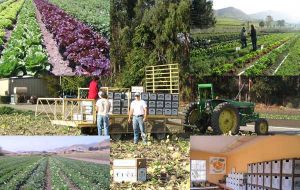MercoPress. South Atlantic News Agency
Organic yields “can better conventional farming”
 Organic farm “can better conventional farming”
Organic farm “can better conventional farming” Organic farming can yield up to three times as much food as conventional farming in developing countries, and holds its own against standard methods in rich countries, according to United States researchers.
They said their findings contradict arguments that organic farming, which excludes the use of synthetic fertilizers and pesticides, is not as efficient as conventional techniques. "My hope is that we can finally put a nail in the coffin of the idea that you can't produce enough food through organic agriculture," Ivette Perfecto, a professor at the University of Michigan's school of Natural Resources and Environment, said in a statement. She and colleagues analyzed published studies on yields from organic farming. They looked at 293 different examples. "Model estimates indicate that organic methods could produce enough food on a global per capita basis to sustain the current human population, and potentially an even larger population, without increasing the agricultural land base," they wrote in their report, published in the journal Renewable Agriculture and Food Systems. "We were struck by how much food the organic farmers would produce," Perfecto said. "Corporate interest in agriculture and the way agriculture research has been conducted in land grant institutions, with a lot of influence by the chemical companies and pesticide companies as well as fertilizer companies all have been playing an important role in convincing the public that you need to have these inputs to produce food," she added.




Top Comments
Disclaimer & comment rulesCommenting for this story is now closed.
If you have a Facebook account, become a fan and comment on our Facebook Page!